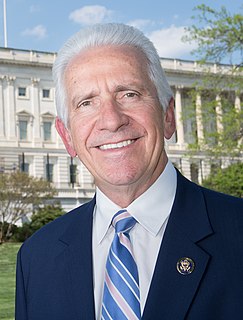A Quote by Joseph Stiglitz
China's accumulation of reserves is a result of the IMF's mismanagement of the Asian financial crisis a decade or so ago. If countries know they can't rely on the IMF to help them, their best defense is their own reserve cushion. In a time of spreading global recession, too much emphasis on savings in surplus countries like China can impede prospects for global growth.
Related Quotes
If we are going to go into a global currency fight against countries like China, well, the US has about 75, 76 billion in foreign reserves. They're going to be up against China with 1.7 trillion in US dollars and foreign reserves, so it's not much of a fight there. It could be an interesting fight though.
It seems evident that the IMF has learned nothing from its inequality-inducing policies during the 1980s debt crises in Latin America nor from its recession-deepening response to the East Asian crisis of the late 1990s. In both regions, the IMF has become synonymous with making bad situations worse.
China, the world's most populous country, 1.3, 1.4 billion people, will in the next decade or so have to begin looking for people outside of China.What does this mean? China will have to become a much more welcoming society. It means that China will have to attract immigrants from other countries in order to slow the aging of the population.
Studying in countries like China isn't only about your prospects in the global marketplace. It's not just about whether you can compete with your peers in other countries to make America stronger. It's also about whether you can come together and work together with them to make our world stronger. It's about the friendships you make, the bonds of trust you establish and the image of America that you project to the rest of the world.
Most people believe that inequality is rising - and indeed it has been rising for a while in a number of rich countries. And there is lots of talk and realization of this. It's harder to understand that at the same time, you can actually have global inequality going down. Technically speaking, national inequality can increase in every single country and yet global inequality can go down. And why it is going down is because very large, populous, and relatively poor countries like India and China are growing quite fast.
What can Americans learn from the Olympics spectacle? According to the IMF, China will succeed America as the dominant economic power in the course of the next presidential term, so Howard Fineman, editorial director of the Huffington Post and MSNBC mainstay, was anxious to pick up tips. 'Brits long ago lost their empire,' he tweeted, 'but overall show us how to lose global power gracefully.' So there's that.
?I believe that it is very difficult in the world of today to continue with G-8 only without taking in account the importance of Brazil, China, India, many in the world economy, because these countries are great consumers, large consumers, and we're also becoming great producers, and also because we were better prepared than the rich countries for the nowadays global crisis.


































